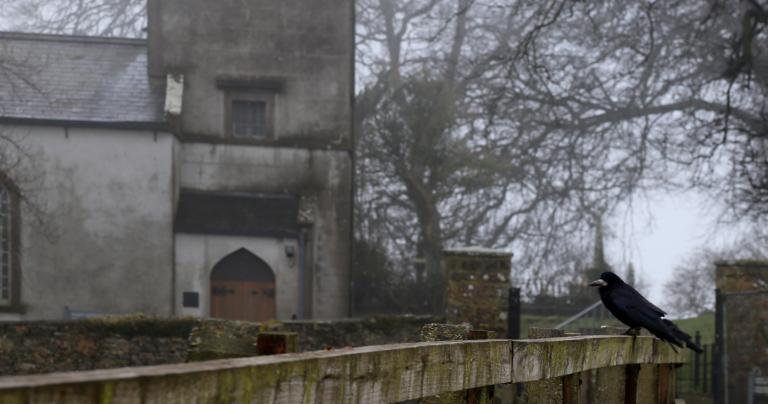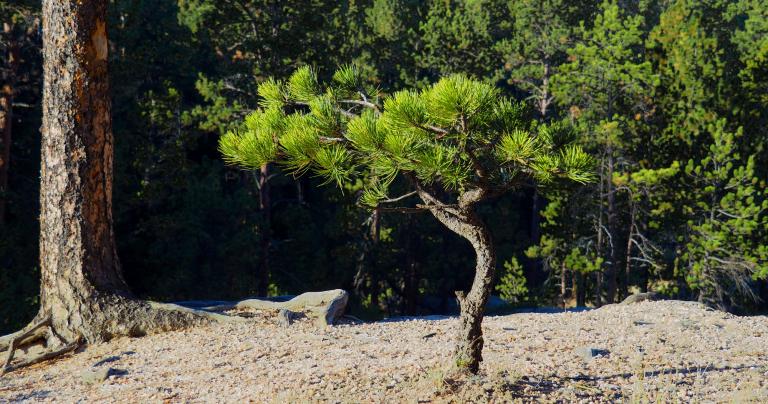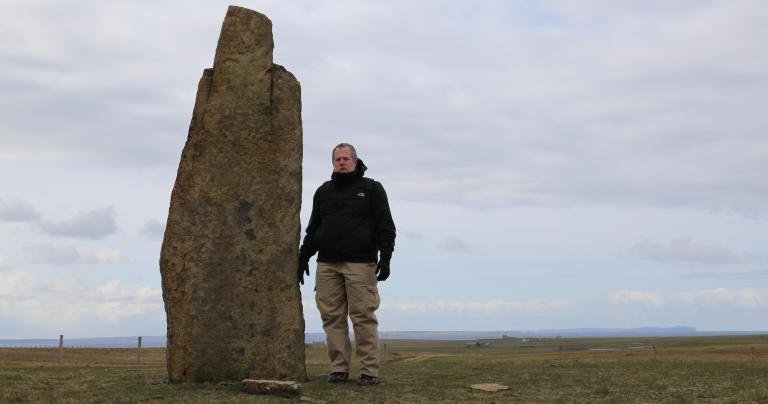Whether you like it or not, if you take on leadership roles, people will look at you as a leader. Rightly or wrongly, if you write blogs and books or if you create music or visual arts, people will look at you as an authority. Even if you’re completely solitary, if you practice diligently you will develop certain expectations for your own skills and commitment.
This is not a Pagan thing or even a religious thing. Show you can do something at work once or twice and people will expect you can do it repeatedly. Show you can do it a dozen times and suddenly you’re the resident expert. In the words of Alexandre Dumas “nothing succeeds like success.”
But what happens when you don’t feel so successful? What happens when doubts start to creep in around your Gods or your magic? What do you do when you start thinking that maybe the atheists are right? Or maybe even the monotheists are right?
Back in September I wrote Doubts, Fears, and TV Preachers – Dealing With the Urge to Turn Back. If you missed it I encourage you to read it now. But that post was written for the kind of doubts we all encounter when we’re starting out in a new religion or spirituality. Keep the outline and change the details and that post could have been written for beginning Buddhists or even religious naturalists.
It’s different when you’re an experienced Pagan. Subtly different, but different nonetheless. Here you’re not only dealing with the eternal questions of life, but you’re also dealing with expectations – first and foremost, your own expectations.
You’ve been practicing magic for 20 years – how can you possibly think it’s all in your head? You’ve sworn oaths to deities that carry severe penalties for breaking them – how can you question the existence of the Gods? Your very identity is bound up in your work as a witch or a Druid or a priest – how can you doubt that this path is good and real and true?
But doubt you do.
I sometimes talk about how my experiences are so strong I no longer believe, I know. I stand by those statements. But I would be lying if I said I never have doubts.
And I’m not the only experienced Pagan who would say the same thing.
How do we deal with our doubts when we expect that we shouldn’t have them in the first place?
Be thankful for your doubts
The first Unitarian Universalist sermon I ever heard was “Cherish Your Doubts” by the late Rev. Suzanne Meyer. It wasn’t what I was looking for, but the fact that I remember it after almost 18 years shows it made an impression on me. Cherish your doubts, because your doubts will keep you honest, humble, and open to new experiences and new ways of thinking.
My fellow UUs like to say that we respect different religions because it’s the right thing to do. It’s one of the ways we affirm the inherent dignity and worth of every person. They’re right, but there’s another reason to respect different religions: because there’s a very good chance there are some areas where they’re closer to right than we are.
Would John Chau have gone to North Sentinel Island to commit cultural genocide and risk his life and the lives of the Sentinelese if he had doubts? Or at least, if he had honored his doubts?
Be thankful for your doubts. They keep you looking for the truth instead of getting lazy because you think you’ve found it. And they keep you from doing horrible things in the name of your religion.
The only religious certainty is false certainty
The question of how we know something is true (if that’s even possible) is a question for philosophy, not religion. But the vast majority of people in the United States know virtually nothing of philosophy, and the Christian churches have claimed that realm for themselves. We never should have allowed them to take it.
Perhaps the most frustrating part of my childhood in a fundamentalist Baptist church (not the most difficult or the most painful, but the most frustrating) was hearing the preacher insist “you can know you’re going to heaven beyond a shadow of a doubt!” I listened intently to those sermons and I never understood them. I asked for clarification and I was told “you have to trust God.” Trusting and knowing are two different things. Eventually I realized that I understood this and the preacher did not.
Where did we come from? Why are we here? How should we live? What happens to us when we die? It is impossible to answer these questions with certainty. Perhaps someday we will be able to find definitive answers to them, but I suspect they’re beyond our ability to know.
If you have doubts it’s because you’re being honest with yourself about what we do know, what we don’t know, and what we likely can never know.
Opposing the mainstream is hard
No Pagan or other religious minority can live in this Christian-flavored materialist society and never have doubts. We are constantly bombarded with Christian preaching and advertisements. We are forced to deal with Christian doctrine as we oppose fundamentalist politicians attempting to give their religion the force of law.
I’m thankful for the atheists who are our allies for science and religious freedom, and I support their right to advocate for their beliefs. But their continued insistence that there are no Gods and that magic is a delusion is a constant drain on the emotional resources of those of us who see things differently.
Living in constant opposition to the mainstream culture is hard.
I look forward to the day when enough people understand spiritual matters the way our distant ancestors did, in the way many people outside the North American – European cultural bloc still do today, and the way we do ourselves. I’m not expecting that in this lifetime. That makes it hard for us.
The mainstream pressure on us to deny what we see and hear and feel is enormous.
Trust your experiences
You may have never had a mystical experience worthy of a History Channel documentary, but if you’ve been doing this for a while, you’ve had some first-hand experiences. Your magic worked, in ways that defy “rational” explanations. You knew something you had no way of knowing. You prayed and made offerings and Someone answered.
Whatever happened, happened – never forget it. Never let anyone gaslight you. Never let anyone rationalize it away – especially if that “anyone” is yourself. We can and should argue about what our religious experiences mean. If a naturalist, materialist explanation is the best fit, so be it.
But if you’ve been doing this a while, you’ve had at least a few experiences where the best fit is a spiritual, magical, polytheist explanation.
Trust your experiences – they’re real.
Does your religion work?
At the end of the day, this is what it comes down to: does your religion work? Does it make your life better? Does it help you deal with life’s hardships? Does it help you contemplate the Big Questions of Life? Does it inspire you to live according to your highest virtues? Does it encourage you to live in harmony with your family, your community, and the rest of the world?
If it does, you’ve got a good, healthy religion.
If you’re an experienced Pagan, the odds are good your religion does work – or you would have left it a long time ago.
Doubts are inevitable and doubts have their place. But don’t let doubts cause you to walk away from something that’s been a good thing for you for years.
Who do you trust?
I’ve been a Pagan for 25 years, a committed Pagan for 17 years, and a public Pagan for 10 years. My practice includes four prayers each day, four devotions each week, a series of annual feast days for certain Gods and ancestors, and public observance of the eight high days of the Wheel of the Year. I’ve seen a green glowing bird and I had an encounter with a fairy dog. My patron deities are never far from my thoughts, and sometimes they’re very very close.
And I still have doubts.
I no longer fear going to hell, but still think there’s a chance that when I die I will cease to exist.
Mind you, I don’t think I’m wrong. I think I’m right. I pray that when I die I’m worthy of the Morrigan or Cernunnos coming to fetch me, though I think it’s more likely it will be one of my ancestors.
At the end of the day, I don’t know. I might be wrong. But if I choose the atheist path or if I were to go back to Christianity, that might be wrong too.
If I have to bet my soul (or at least, my internal credibility) then I’m damned well going to bet on what I think is most likely and not on what some other equally-fallible human tells me I’m supposed to believe.
I’m going to bet on what has brought meaning and fulfillment to a life that was frustrating and depressing for my first 30-something years.
If I’m going to be wrong, I’m going to be wrong on my terms, not on the terms of the mainstream society.
What got you here will keep you here
There is no such thing as religious certainty. Doubts mean you’re honest. Doubts mean you’re human.
The mainstream religions have huge world-wide support systems to help people get through their doubts… or in some cases, to shame them into suppressing their doubts. We’re a long way from having that level of resources and influence in society. That makes dealing with doubts harder for Pagans than for Christians or even for atheists.
But we keep working at it. We trust our experiences. We see the benefits our beliefs and practices bring to our lives. We learn to trust our own discernment.
And we keep doing whatever it is that makes us Pagans. We keep making offerings to our Gods. We keep dancing under the full moon. We keep working our magic.
Maybe we learn something new and so we adjust our beliefs. Or maybe we reaffirm what we’ve always thought was right. We deal with our doubts because it matters what we believe.
But it matters what we do a lot more.



















